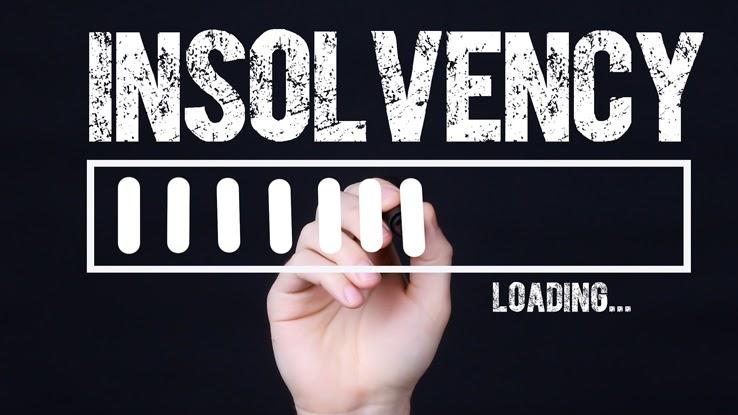Is Unethical Advertising Agains the Law

Financial laws around the globe tin can vary from those institute in the U.S. In Australia, insolvency laws regulate the diplomacy of a company that can no longer pay its financial obligations. The near common procedures in the country for handling insolvency are voluntary administration, liquidation and receivership.
Governed past the Corporations Act of 2001, Australian insolvency laws primarily exist to constitute and maintain a remainder between the interests of a company that has become insolvent, its creditors and the general community that could too be affected by the company's financial difficulties. Australian law uses the term "insolvency" to refer to companies and bankruptcy in reference to individuals.
Warning Signs for Insolvency
A company becomes insolvent when it no longer has the resources to pay its creditors when credit payments or lump sum amounts become due. This inability to fulfill its fiscal obligations quickly leads to mounting fiscal troubles if the effect isn't quickly addressed. Australian law establishes specific criteria for insolvency, and business concern experts point to several signs that a company could soon face insolvency. These signs include continuing quarterly and annual financial losses, overdue tax liabilities and liquidity ratios that are beneath ane.

Some other sign that a company could go insolvent is deteriorating relationships with banking institutions. When these relationships go strained, it makes it very difficult for the visitor to obtain additional funding when they need it. Companies that are insolvent as well normally lose the power to raise disinterestedness capital, and their suppliers may just award collect-on-delivery (COD) transactions or require "bribe" payments earlier transactions tin proceed.
Establishing a Presumption of Insolvency
In some instances, creditors can rely on presumptions of insolvency if providing proof of the insolvency is next to impossible. This paves the style for the company to apply for defalcation proceedings for the company. During the iii months prior to the filing of the application, at least one fiscal issue must have occurred with the company.

Ane qualifying factor is the failure of the debtor company to comply with the statutory demand from the creditor. Some other cistron would exist an unsatisfied — in part or in full — judgment granted by a court in favor of the creditor. Another situation where a company could be presumed to be insolvent is if an order was issued to engage a receiver to enforce a floating charge, and that individual was appointed to presume possession of a visitor asset.
Basic Elements of Australian Insolvency Laws
Once a company is adamant to be insolvent, the company's assets and finances are evaluated to see if the visitor can recover and atmospheric condition the financial slump or if information technology has no realistic chance of regaining its financial viability. If the company is deemed to be salvageable, it can enter into a nonliquidation agreement with its creditors, or information technology tin cull to proceed with formal insolvency proceedings.

One of the provisions in Australian insolvency laws aims to provide equal, fair, organized ways of handling insolvency proceedings. It ensures that there'due south an equitable distribution of the company's avails to its creditors and other claimants. Australian insolvency laws are supposed to ensure that the debts are satisfied and that the insolvency proceedings are resolved as apace — and with as little expense — as possible.
Australia's insolvency laws likewise accept mechanisms in place to help the company recover if officials decide in that location'due south a take chances for the company to move beyond its financial distress. Likewise, the laws provide that both the company and its creditors should accept equal and off-white involvement and contribution in the resolution of the insolvency issue. The laws also dictate that the visitor's directors, officers and associates be investigated to make up one's mind why the company became insolvent.
Common Insolvency Provisions in Commonwealth of australia
According to Australian laws, insolvent companies may choose to undergo a number of procedures, the most common of which are voluntary administration, liquidation and receivership. Voluntary assistants is a restructuring option for companies facing insolvency to aid them stave off liquidation or a winding-up process. Companies that have a realistic chance of recovering often initiate proceedings for this choice. A deeds of company system (DOCA) is another type of voluntary restructuring option.

Liquidation, on the other hand, occurs when all the remaining assets of the visitor are nerveless, appraised so sold. The proceeds of the sale are used to satisfy the company'due south debts and obligations. Whatever balance that remains later the payment of the debts and whatever costs incurred while liquidating the company are deservedly divided among the owners co-ordinate to their rights and interests. The liquidation process may be voluntary or could be compulsory.
The process of receivership involves a receiver who "receives" the assets that secured the debt, sells them and then uses the proceeds to satisfy the debt. In the Corporations Act of 2001 this person is referred to as the controller. A secured creditor pursuant to a security system with the debtor company usually initiates this insolvency procedure. The secured creditor appoints two or more receivers in the consequence that one cannot fulfill the duties of the appointment due to sick health or expiry.
Some fiscal experts view Commonwealth of australia as a creditor-friendly jurisdiction where the interests of creditors are given more weight. Australian insolvency laws actually assistance strike a residue between the interests of debtor companies and their creditors. The purpose is for the laws to encourage companies to engage in healthy risk-taking but discourage them from reckless borrowing.
Source: https://www.askmoney.com/investing/how-do-australian-insolvency-laws-regulate-companies?utm_content=params%3Ao%3D1465803%26ad%3DdirN%26qo%3DserpIndex
Post a Comment for "Is Unethical Advertising Agains the Law"